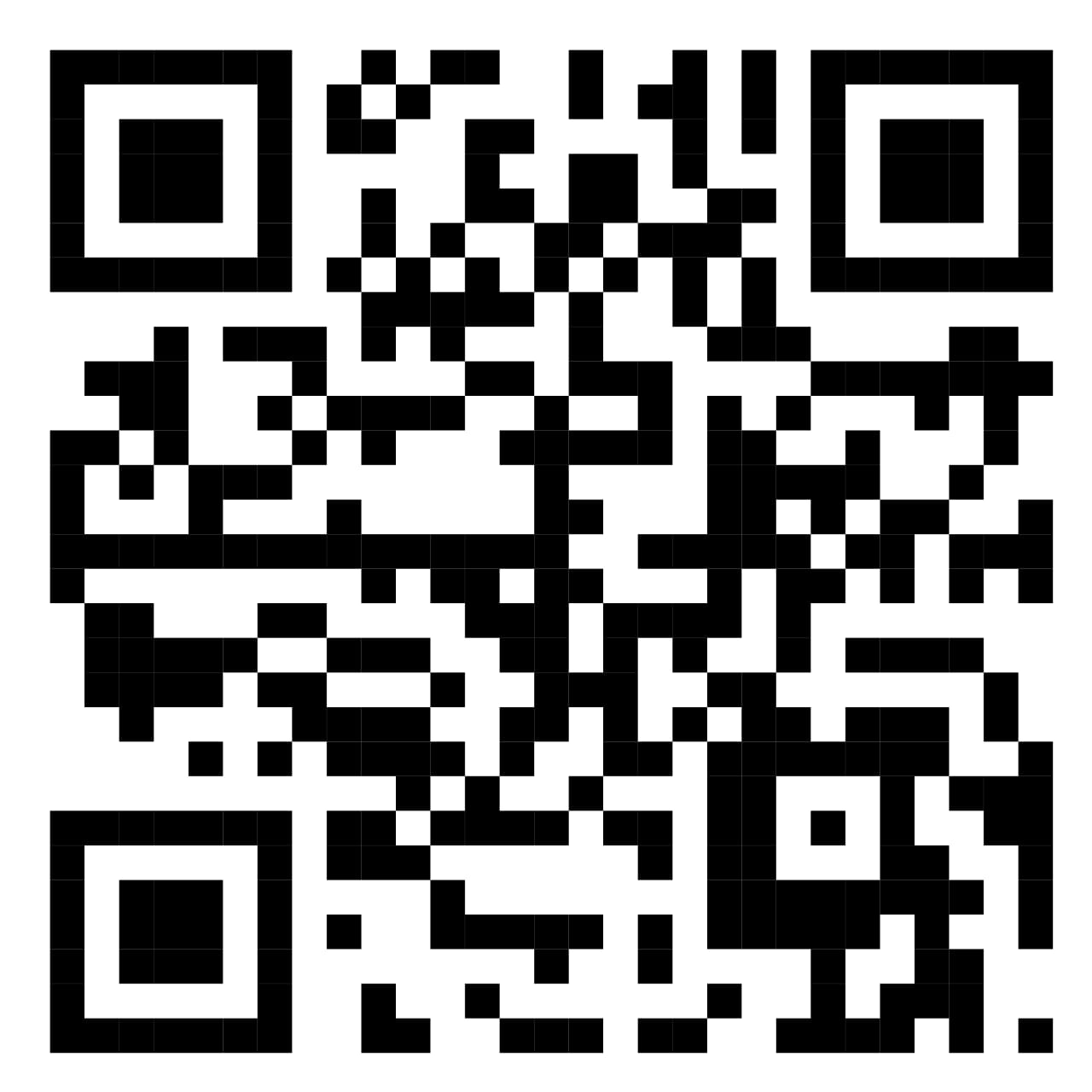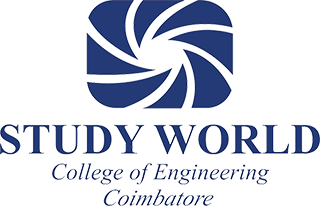Department Of Electronics And Communication Engineering
With an initial admission of 60 students, the department of Electronics & Communication Engineering was founded in 2009. Students are given a strong technical foundation and research skills by the undergraduate faculty in the department of electronics and communication, which enables them to succeed in their respective disciplines. It offers a wide range of electives for students to choose from, including courses in digital electronics, signal processing, information technology, electronic hardware and software, automation, robotics, and control, communications, radio, and television, VLSI, signals and systems, electronic devices, electromagnetic fields, and other circuits & systems used in varying applications, including simple circuits to complex digital satellite systems, GSM & CDMA technology, speech processing, and more.
microcontroller programming, digital system design, and other topics to help them make the best career decision. The department supports research in the area of electronics and communication. The department values how technology advances via breakthroughs and how it is used to help humanity. By using contemporary teaching methods and conducting engineering and technological research, the department provides high-quality education. In order to get practical experience and develop into marketable technocrats, students are also encouraged to participate in supervised practical training in a variety of industries. Faculties in the department are knowledgeable and enthusiastic.
Vision
- To be a centre of excellence in Electronics and Communication Engineering education, to impart globally competent engineers and produce creative solution to societal needs.
Mission
- To provide quality education and to make the students entrepreneur and employable.
- To educate students about continuous upgradation of techniques for reaching heights of excellence and train them to build life skills for their career development
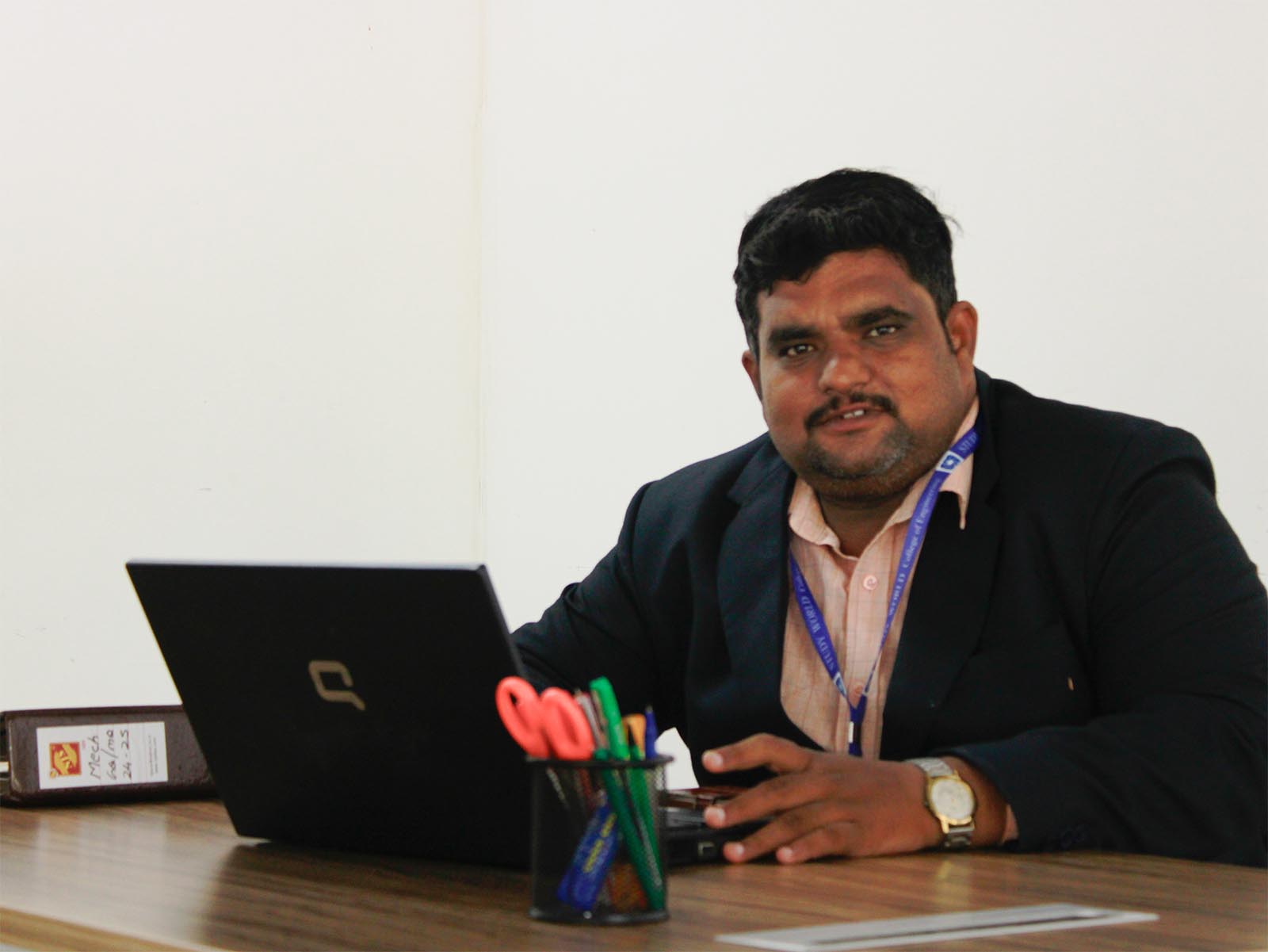
With an initial admission of 60 students, the department of Electronics and Communication Engineering was founded in 2009. Students are given a strong technical foundation and research skills by the undergraduate faculty in the department of electronics and communication, which enables them to succeed in their respective disciplines. It offers a wide range of electives for students to choose from, including courses in digital electronics, signal processing, information technology, electronic hardware and software, automation, robotics, and control, communications, radio, and television, VLSI, signals and systems, electronic devices, electromagnetic fields, and other circuits and systems used in varying applications, including simple circuits to complex digital satellite systems, GSM and CDMA technology, speech processing, and more.
Students are better able to apply their theoretical knowledge to practical problems thanks to the faculty’s constant involvement with them. Additionally, the professors provide special lectures on subjects like power electronics, communication, control systems, networking, etc., which guarantees students’ employment in prestigious global corporations. The ECE department teaches students in-depth information on fundamental concepts in electronics, communication systems, electronic devices, circuits, microcontroller programming, digital system design, and other topics to help them make the best career decision. The department supports research in the area of electronics and communication. The department values how technology advances via breakthroughs and how it is used to help humanity. By using contemporary teaching methods and conducting engineering and technological research, the department provides high-quality education. In order to get practical experience and develop into marketable technocrats, students are also encouraged to participate in supervised practical training in a variety of industries. Faculty in the department are knowledgeable and enthusiastic. The laboratories are state-of-the-art.
• Microprocessor and Microcontroller Lab
• Analogue and digital circuits lab
• VLSI design lab
• Communication systems lab
• Digital signal processing lab
• Linear integrated circuits lab
• Networks lab
• Circuits and simulation lab
It also has the latest software in the electronics and communication area. Faculty and students of ECE are encouraged to do NPTEL certifications in various subjects, and many got ELITE.
Dr.S.Kannadhasan., M.E., M.B.A., Ph.D.
HOD/ECE
Faculties
| SL.NO | NAME | DEPT. | DESIGNATION |
| 1. | Dr. Gomathi P | ECE | Professor |
| 2. | Dr. Kannadhasan S | ECE | Associate Professor |
| 3. | Mrs. Selvi T | ECE | Assistant Professor |
| 4. | Mr. Saravanan P | ECE | Assistant Professor |
| 5. | Mrs. Palaniyammal P | ECE | Assistant Professor |
| 6. | Mrs. Priya G | ECE | Assistant Professor |
| 7. | Mrs. Sneka P | ECE | Assistant Professor |
| 8. | Mrs. Shobana P | ECE | Assistant Professor |
| 9. | Ms. Nivethitha P | ECE | Assistant Professor |
| 10. | Mr. Arul Augustine J | ECE – GE | Assistant Professor |
| 11. | Mr. Dolian S | ECE – GE | Assistant Professor |
| 12. | Mr. Althaf M. A. | ECE – GE | Assistant Professor |
| 13. | Ms.Anupriya K | ECE – GE | Assistant Professor |
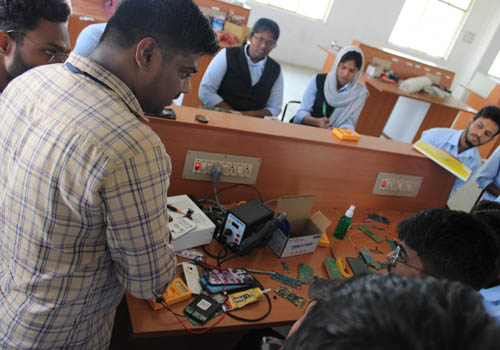
Basic of Electrical & Electronics Engineering Lab
One of the first electrical engineering lab courses that students will take is basic electrical and electronics lab. Students practise performing fundamental electrical measurements in this lab using equipment including oscilloscopes, power supply, function generators and digital multimeters (DMMs). Students start learning how fundamental electronic components like resistors, diodes, transistors, and operational amplifiers work after they have gained some proficiency with these instruments
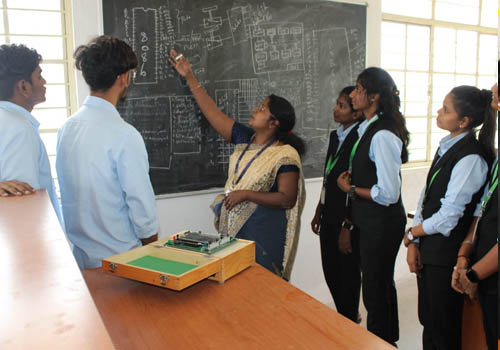
Microprocessor & Microcontroller Lab
The microprocessor lab is furnished with IBM PCs, Macro Assembler, 8085 microprocessor kits, 8051 microcontroller kit and interface devices. The students learn how to interface with a variety of devices, including a stepper motor, an analogue-to-digital converter, and a seven-segment display. With the aid of 8086 Macro Assembler, the students have in-depth understanding of developing and running 8086 Assembly Language programmes. Students use IBM PCs to run C programmes.
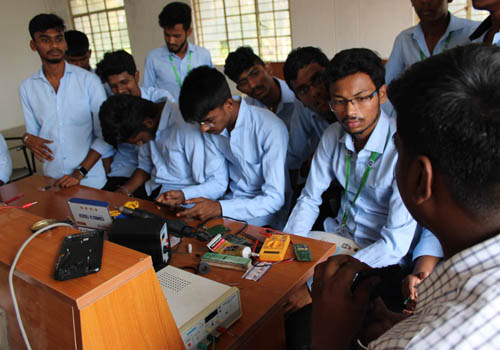
Embedded System Lab
The emphasis of the programmes in embedded systems is on the enabling technologies and design methods for computer systems that are embedded as a crucial component of larger systems and created for specialised control functions of devices with varied electrical and mechanical components. The majority (98%) of processors in use today are found in embedded systems. All sorts of industrial and personal systems, including satellites, robotics, vehicles, aircraft, and mobile phones, utilise embedded systems.
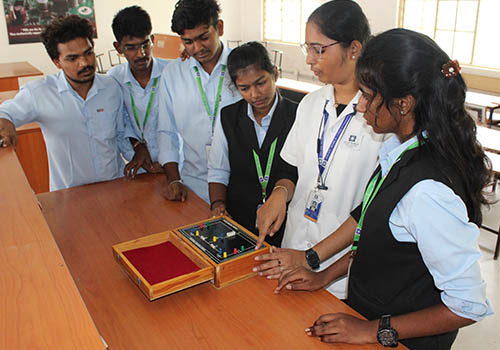
VLSI Lab
The ESE170 lectures are supplemented with practical work in the laboratory. The objective is to provide students with the chance to create and test actual systems while illustrating ideas covered in class. The Xilinx ISE tool chain, a potent cutting-edge CAD tool for developing and executing digital systems on Field Programmable Gate Array (FPGA) boards, is used in lab activities. The Xilinx ISE software tools are available at the Frederick Ketterer Lab, an ESE undergraduate lab.
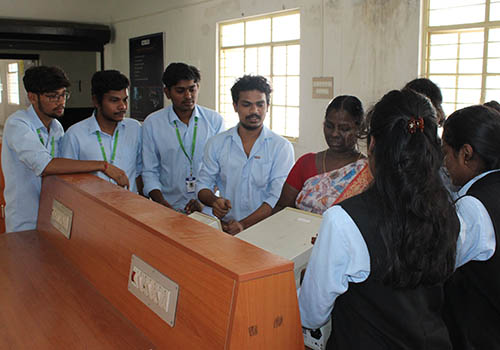
Electronics Lab
Electronics Lab offers researchers access to cutting-edge electronics, helps research programmes include electronics technology, and facilitates the transfer of electronics technology to consumers by offering continuing technical assistance. EDL collaborates with a wide range of academic departments to solve problems in a mutually beneficial way.

Digital Electronics Lab
Students in this course have access to a lab where they may further their knowledge of digital electronics. Number systems, Boolean algebra, logic families, medium scale integration (MSI) and large scale integration (LSI) circuits, analogue to digital (AD) and digital to analogue (DA) conversion, as well as other related subjects, are given particular attention. Students should be able to show a broad mastery of digital foundations after completing the course.
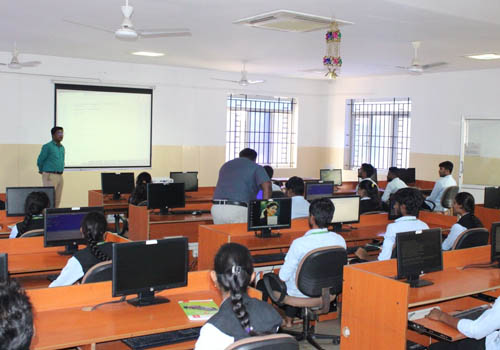
Communication Laboratory
By preparing its students to contribute significantly, the Communication Laboratory (Lab) meets the demands of facilities in the communication industry. Students pursuing a Bachelor of Technology in a variety of fields, including Computer Science, Electronics & Communication, and Electronics & Instrumentation, utilise this lab. This lab is furnished with numerous kits for implementing and comprehending communication circuits/techniques, as well as digital storage oscilloscopes, cathode-ray oscilloscopes, function generators, and oscilloscopes. The students’ understanding of numerous communication methods, such as AM, FM, PM, DSB-SC, SSB-SC, PAM, PPM, PWM, and PCM, is improved. All of the experiments outlined in the curriculum and beyond are carried out. This lab’s goal is to provide its students a solid foundation in the area of communication. Additionally, it gives students and researchers enough possibilities to advance their knowledge in the area of communication.
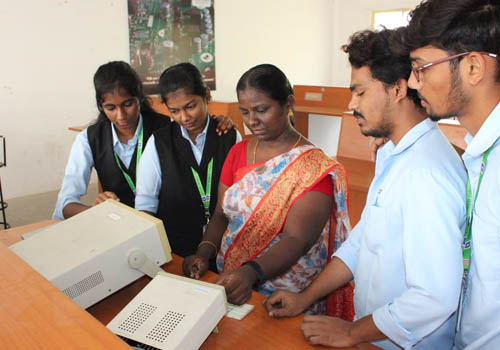
Linear Integrated Circuits Lab
This lab offers basic and advanced facilities for experimentation, project work, and research relevant to UG and PG coursework in the areas of device modeling, simulation, and other elements of front end VLSI design flow. Students in the B. Tech. and M. Tech. programmes may utilise this lab to develop their knowledge and abilities in FPGA module implementation. The goal of the lab is to familiarise students with device modeling, simulation, synthesis, and FPGA module implementation using VHDL and P Spice tools.
1. To provide the students with a strong foundation in the required sciences in order to pursue studies in Electronics and Communication Engineering.
2. To gain adequate knowledge to become good professional in electronic and communication engineering associated industries, higher education and research.
3. To develop attitude in lifelong learning, applying and adapting new ideas and technologies as their field evolves.
4. To prepare students to critically analyze existing literature in an area of specialization and ethically develop innovative and research oriented methodologies to solve the problems identified.
5. To inculcate in the students a professional and ethical attitude and an ability to visualize the engineering issues in a broader social context.
1 Engineering knowledge: Apply the knowledge of mathematics, science, engineering fundamentals, and an engineering specialization to the solution of complex engineering problems.
2 Problem analysis: Identify, formulate, review research literature, and analyze complex engineering problems reaching substantiated conclusions using first principles of mathematics, natural sciences, and engineering sciences.
3 Design/development of solutions: Design solutions for complex engineering problems and design system components or processes that meet the specified needs with appropriate consideration for the public health and safety, and the cultural, societal, and environmental considerations.
4 Conduct investigations of complex problems: Use research-based knowledge and research methods including design of experiments, analysis and interpretation of data, and synthesis of the information to provide valid conclusions.
5 Modern tool usage: Create, select, and apply appropriate techniques, resources, and modern engineering and IT tools including prediction and modeling to complex engineering activities with an understanding of the limitations.
6 The engineer and society: Apply reasoning informed by the contextual knowledge to assess societal, health, safety, legal and cultural issues and the consequent responsibilities relevant to the professional engineering practice. 2
7 Environment and sustainability: Understand the impact of the professional engineering solutions in societal and environmental contexts, and demonstrate the knowledge of, and need for sustainable development.
8 Ethics: Apply ethical principles and commit to professional ethics and responsibilities and norms of the engineering practice.
9 Individual and team work: Function effectively as an individual, and as a member or leader in diverse teams, and in multidisciplinary settings.
10 Communication: Communicate effectively on complex engineering activities with the engineering community and with society at large, such as, being able to comprehend and write effective reports and design documentation, make effective presentations, and give and receive clear instructions.
11 Project management and finance: Demonstrate knowledge and understanding of the engineering and management principles and apply these to one’s own work, as a member and leader in a team, to manage projects and in multidisciplinary environments.
12 Life-long learning: Recognize the need for, and have the preparation and ability to engage in independent and life-long learning in the broadest context of technological change.
PSO1: Design, develop and analyze electronic systems through application of relevant electronics, mathematics and engineering principles
PSO2: Design, develop and analyze communication systems through application of fundamentals from communication principles, signal processing, and RF System Design & Electromagnetics.
PSO3: Adapt to emerging electronics and communication technologies and develop innovative solutions for existing and newer problems

- Modern Electronic Instrumentation
- PCB Designing.
- Electronic Hardware and Troubleshooting
- Wearable Technology
- E vehicle Design for Electronics
- Blockchain Technologies
- Internet of Things
- Artificial Intelligence and Machine Learning
- Emebedded Technologies
- E-Waste Management Systems
- VLSI
- MATLAB
- Companies
- Datascience
CYBORGEEKS – THIRD YEAR ASSOCIATION INAUGURATION
The staff members along with the students of 3rd year decided to inaugurate our technical association on 26th September 2022. We invited Ms. Varada Vishwambharan, Senior Software Engineer, ROBERT BOSCH as the chief guest for the inaugural function. The fuction started by II am in the seminar hall. All the 3 year students, the teaching and non- teaching faculties gathered in the hall. Dr. P Gomathi, the Principal of Study World College of Engineering, Mr. M M Manoharan, the Administrative Officer, Dr. Pavithran Rayoth, the Principal of Study World College of Allied Health and Sciences, Mrs.J.Indira Gandhi, Co-ordinator along with the guest of the day were on the dias.
Workshop: Applications of Embedded Technologies Using ARDUINO [AETUA 2022], 28th September 2022
The department of Electronics and Communication Engineering decided to organize a workshop on 28th September 2022. The chief guest presiding the function was Mr.Suresh Kumar who is an Embedded Developer in Clarazon Technology, Coimbatore. The function started by 10:30am in the Seminar hall and was presided by the Principal Dr.P.Gomathi, Administrative officer Mr. M.M.Manoharan , Mr. K.Suresh Kumar, teaching faculties and students from in and out of our college
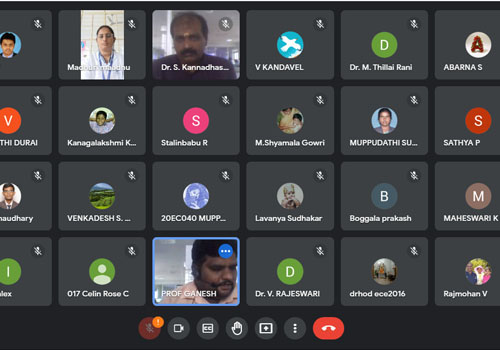
International Webinar: Healthcare Informatics 01st November 2022
The department of Electronics and Communication Engineering decided to organize an International Webinar on 01st November 2022. The chief guest presiding the function was Dr.R.Dhaya who is an Professor, Department of CSE, Presidency University, Bangalore. The function started by 10:30am through Google Meet, Online mode and was presided by the Principal Dr.P.Gomathi, teaching faculties and students from in and out of our college
International Webinar: Present and Future State of the Art in Radar and Satellite Communications, 05th November 2022
The department of Electronics and Communication Engineering decided to organize an International Webinar on 05th November 2022. The chief guest presiding the function was Mr.Antony Judice who is an Lecturer , Engineering Department, University of Technology and Applied Sciences, Ibri, Oman. The function started by 10:30am through Google Meet, Online mode and was presided by the Principal Dr.P.Gomathi, teaching faculties and students from in and out of our college
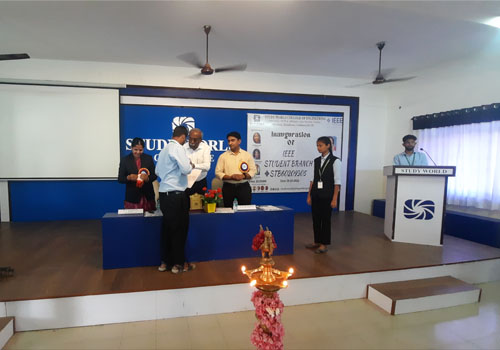
IEEE INAUGURATION
The Study World College of Engineering established an IEEE student branch consisting of 33 students and 3 staff members with the help of Dr.S.Kannadhasan as the IEEE Branch Counselor, SWCE. The inaugural ceremony held on 25th February 2023 in the Seminar Hall of the college. The Chief Guest for the function was Dr.V.Ramachandran, Former VC Annauniversity, and Former Director NIT, Nagaland
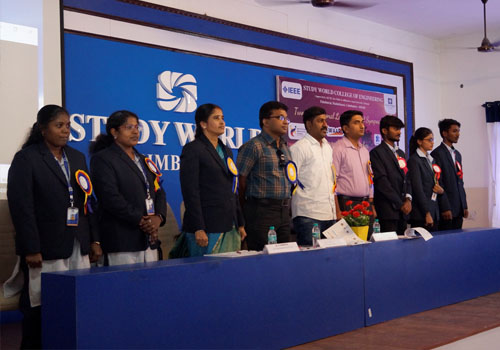
NATIONAL LEVEL TECHNICAL SYMPOSIUM – “SWAARUSH 2K23”
The Study World College of Engineering to organized the national level technical symposium held on 17th-18th February 2023 in the Seminar Hall of the college. The Chief Guest for the function was Mr.M.Navin, Value Management Engineer @ SLB, Coimbatore and Mr.V.Sridhar, Head of Production @ YESRGB, Artstudios PVT Ltd, Bangalore.
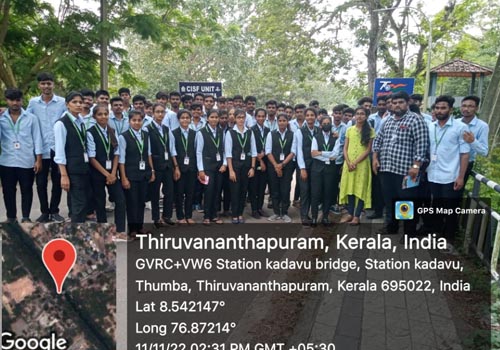
INDUSTRIAL VISIT
The department of Electronics and Communication Engineering decided to organize an Industrial Visit on VSSC Space Museum, ISRO, Thiruvananthapuram 11th November 2022.
MEMORANDUM OF UNDERSTANDING
- G.k Engineering
- Uniq Technologies
- Sprout Knowledge Solutions Private Limited
- Netenzaa Innovation Private Limited
- Wiskill Learning Private Limited
- Yardstick Training And Placement Academy
- Rotary Avinashi East
- Tamilnadu Science Forum
- Netenzaa Innovation Private Limited
- Yardstick Training And Placement Academy

ACHIEVEMENTS
STUDENT ACHIEVEMENTS
- Vignesh won third prize at National Level Technical Symposium held on Gnanamani College of Technology, Namakkal, 12th October 2022
- Rohipraphulla has participated the paper presentation organized by department of ECE during the ACET TECH FEST, National Level Technical Symposium held at Akshaya College of Engineering and Technology, Coimbatore on 01.04.2023.
- Arthi has participated the paper presentation organized by department of ECE during the SAKURA 23, National Level Technical Symposium held at Hindusthan Institute of
Technology, Coimbatore on 07.03.2023
- Over 500 books covering all areas of computer science
- Over 100 back issues of journals
- 200 Reference books are available
- Open over 10 hrs a day
- Reading hall with 20 seating capacity
- Stacking area [over 10 shelves] 200 Sqft.
- The library in charge, in consultation with the head of the department, will design and co-ordinate the rules, regulations and functioning of the department library.
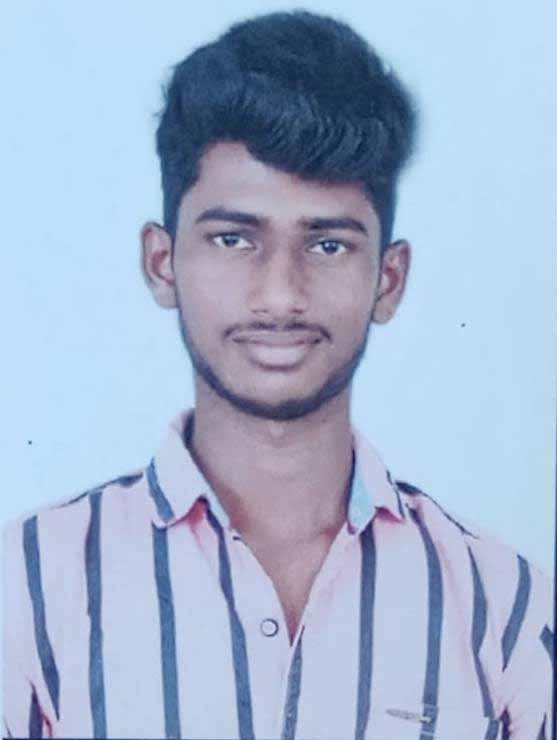
J.Anil Kumar (III Year ECE)
CGPA: 8.00 (Upto 4th Semester)
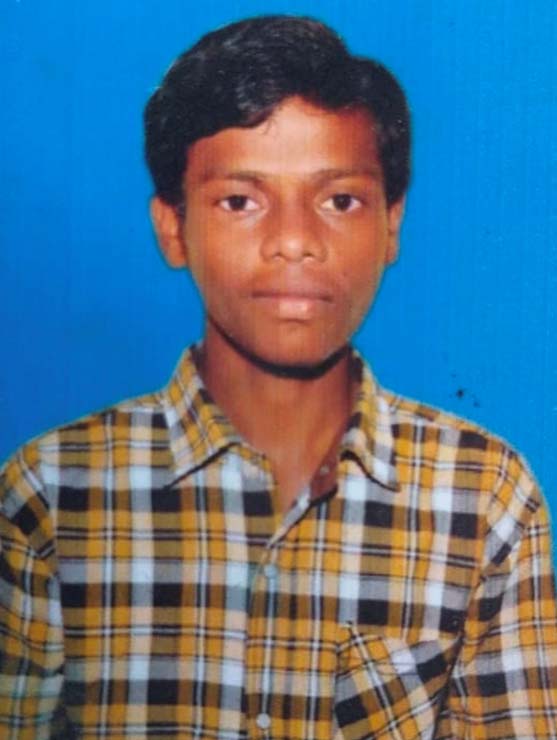
C.H. Sundar Paul (IV Year ECE)
CGPA: 8.00 (Upto 4th Semester)
